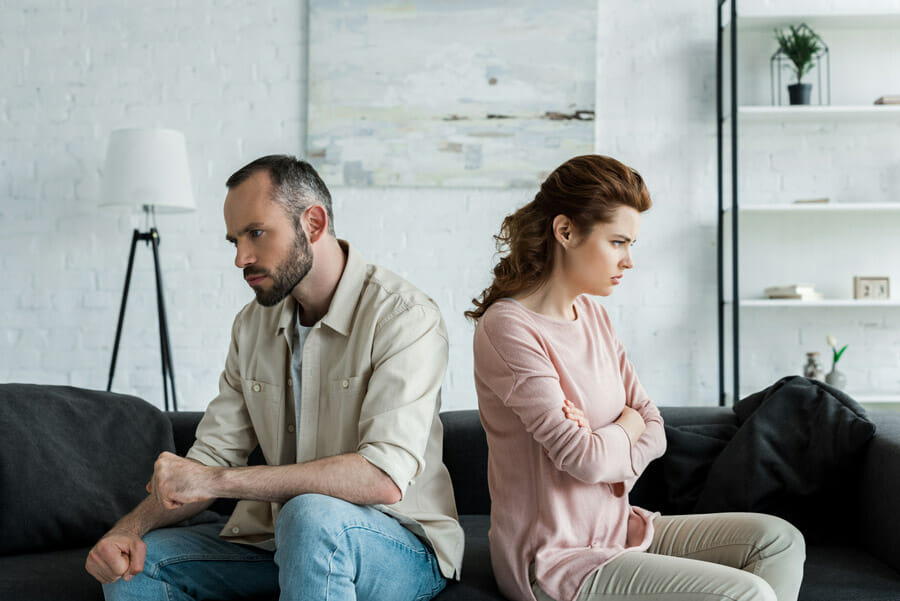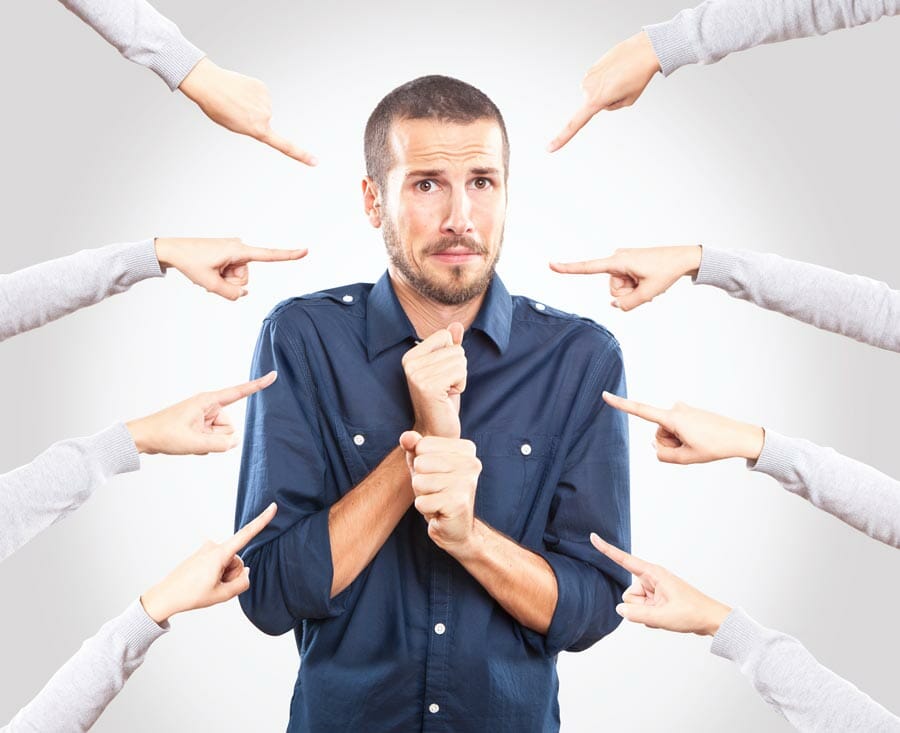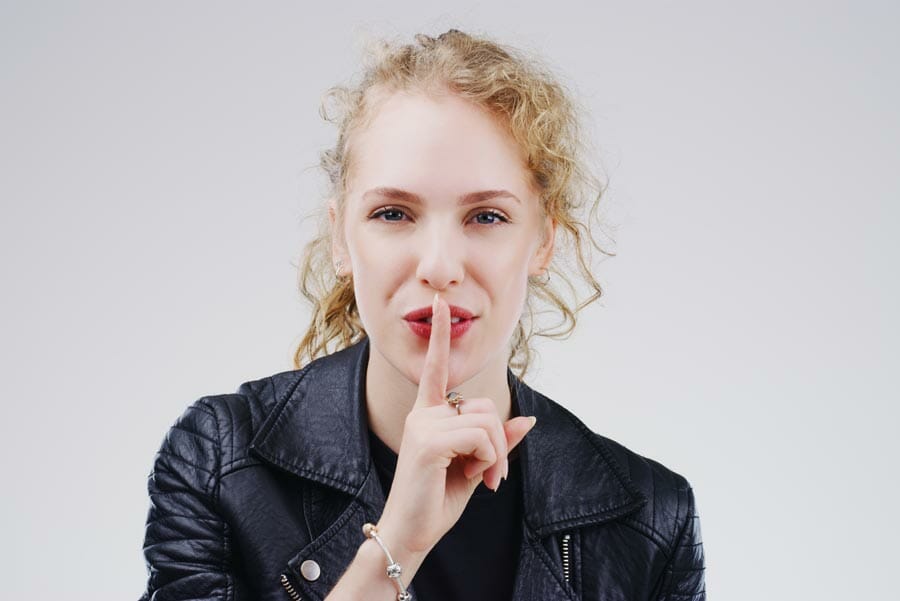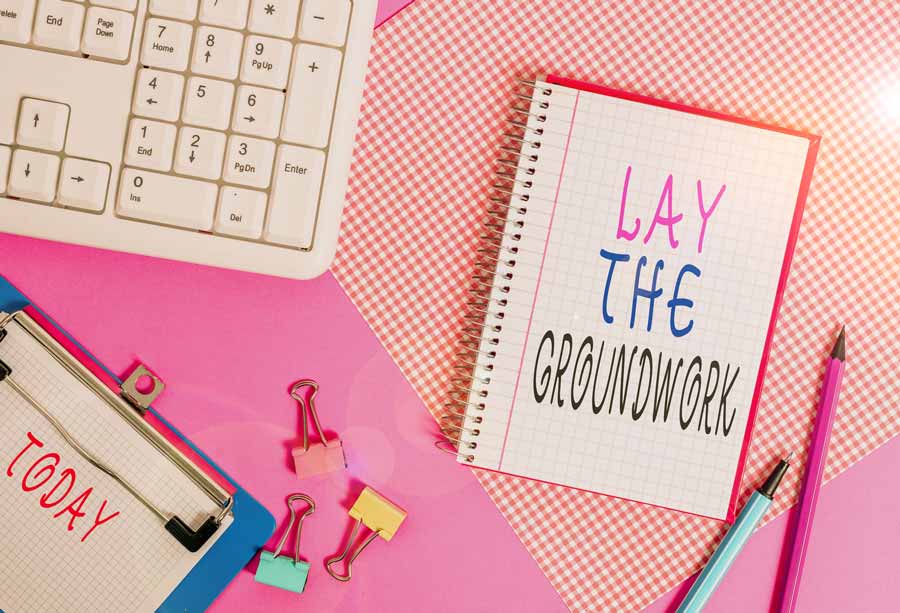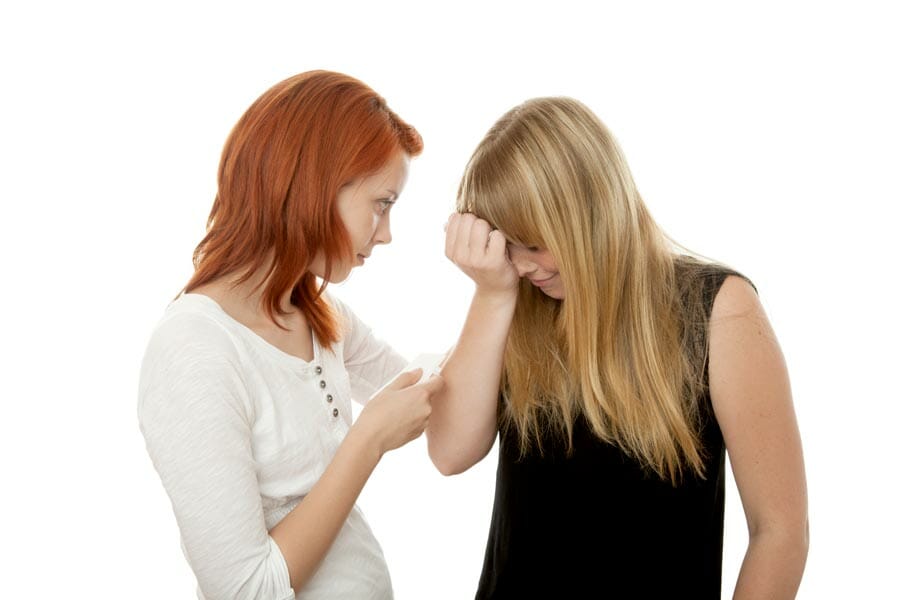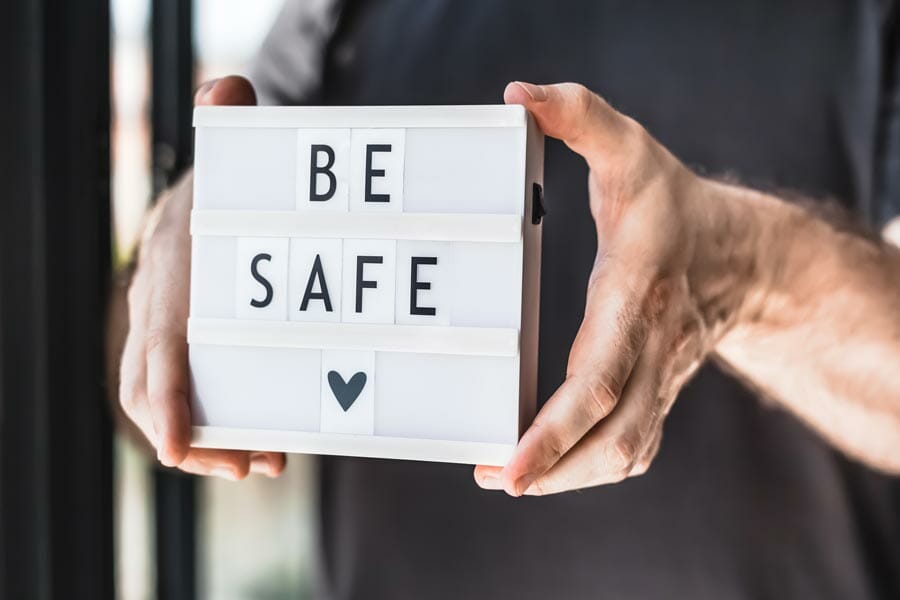An abusive relationship is not always easy to recognize. The abusive party will often try to hide it or escalate it slowly to make sure you won’t notice until you have invested a lot in the relationship or become more isolated. Often, the overt abuse starts once the partner becomes vulnerable in some way, for example, if they become financially or emotionally dependent. Sometimes the abuser might be a narcissist, so the situation may involve narcissistic abuse. However, there are some earlier signs to look out for, even if they are disguised as signs of caring or being involved. You can also check out the article 11 signs you are in an abusive relationship.
4 Warning Signs of an abusive relationship
1. Jealousy
Jealousy is often normalized as a sign of caring a lot. Sometimes, feeling jealous of your partner is normal, but constant expressions of jealousy are not. Feeling that your partner gets upset at you interacting with your friends, becoming jealous of simple and normal situations, or expecting you to take action and reduce any kind of contact that makes them feel jealousy might be a warning sign.
2. Control
An abusive partner will often try to control you, escalating the attempts as time goes on. However, it can start with small attempts at control – trying to get you to change how you dress and look, how you spend your time, and who you engage with. It might appear as criticism or a a sign of caring or feeling jealous, for example, asking you to dress differently or cut down on the make-up (or wear more). Attempts to control you are often early warning signs.
3. Isolation
Abusers will often start working to isolate you from the people closest to you. They might start pointing out flaws or things they don’t like and encouraging you to spend more time with them. They might also want to be involved in everything and respond negatively if you want to meet someone without them. While it’s normal for partners to want to do many things together, it’s not healthy to expect to share 100% of one’s time and activities. Abusers will often try to get you to cut down on contact with your friends and family, say or imply they don’t like them, or do other things to undermine other important relationships.
4. Criticism
Abuse rarely begins with an intense physical and emotional attack. Instead, it builds up to it, and often the first signs are critiques, often covert or with the stated intent to help you ”improve.” It might start with jokes or critiques directed at your appearance, hobbies, choices, work, and abilities. While a loving partner might also offer criticisms sometimes, it matters to see how you feel – are they constructive or destructive? Did you ask for their opinion? Do they leave you doubting yourself?
The first signs of abuse are often subtle and directed at undermining your self-esteem, relationships with others, and your trust in yourself. Watch out for any comments or behaviors that seem to have these goals. If you feel bad in your relationship, then something is not going right.
How to leave an emotionally abusive relationship?
It can take a lot to leave an emotionally abusive relationship. Many survivors feel that they won’t find another person, that they depend on the abuser, or fear the consequences of leaving. Let’s look at a few strategies that will make the process easier and smoother.
Make the choice to leave
Sometimes, we don’t commit entirely to the process. We might still have a hope that our partner will change or that the relationship will improve. We might not commit to the choice and hope to come back. It’s important that we allow ourselves to leave and put most of our energy into it, not into fixing the relationship, for instance.
Don’t be open about it
It’s important that the abuser is not aware of our intentions. If they know, they will start pressuring us, show their anger or disappointment, might start manipulating us, or might escalate the abuse to a physical level. It might feel, especially during the better moments, that we have a responsibility to tell them, but we don’t.
Lay the groundwork
It’s easier to leave when you are prepared. Protect your devices and electronic accounts and gather money where your partner can’t find it. Put the most important documents and papers and keepsakes somewhere they will be safe, for instance, with a friend. Ask for help and have a place to go to.
Tell people you trust
Having help and support when you leave is very important. Your friends and family members can be there for you when you leave to make sure you’re safe, offer emotional and other forms of support, and provide the assistance you might require. It can be difficult to explain the situation, especially if you’ve been taught to believe it’s your fault, but asking for help will help you stay safe and allow you to leave for good.
Get professional support
There are likely services in your area that can offer help for leaving an abusive relationship. Therapists, counselors, lawyers, doctors, and more can all help you in different ways, and there are also organizations providing free support if you can’t afford a paid one. See what services there are in your area and get help with the emotional, legal, and other aspects you will be facing.
Stay safe
Your safety is the top priority in the situation. You might have to wait a little before leaving to make sure you are protected and take additional measures, like cutting contact, changing your information, not revealing where you are, and more. It’s important that you find yourself the safety and stability you can achieve and focus on this as a priority. Allow yourself to do what you need to in order to stay safe, even if it seems excessive to others. You know best what you need.
If you liked this post, please share it with your friends on social media, because you might be able to help someone with this information.
This post was proofread with Grammarly. If you liked this post, please share it with your friends on Social Media.

